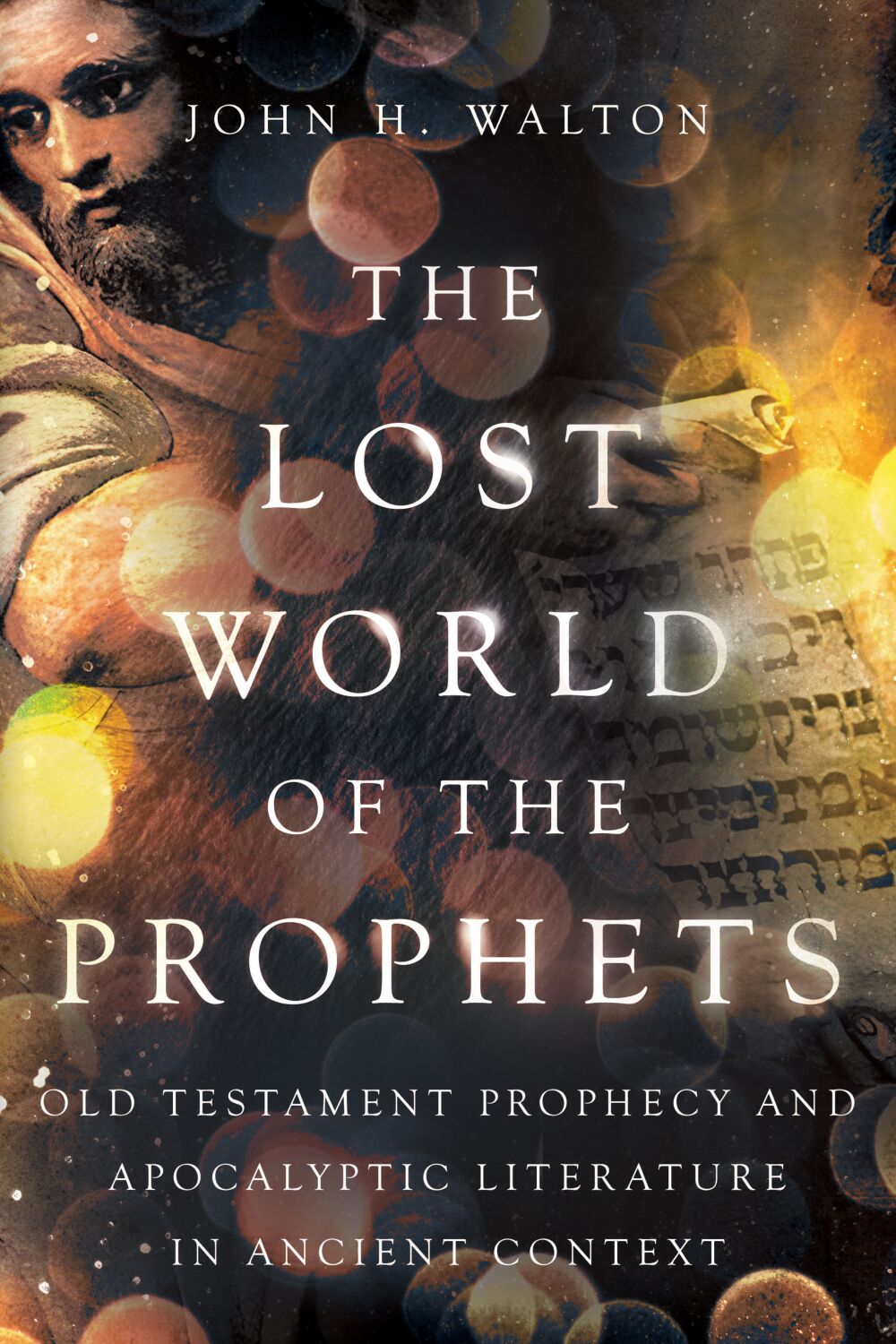A Conversation on Old Testament Prophecy with John H. Walton
John H. Walton, emeritus professor of Old Testament at Wheaton College and Graduate School, has written a seventh volume in his Lost World series, The Lost World of the Prophets. Keep reading to hear more about how the series came to be and how Walton has developed his signature "proposition" structure.
The term "prophecy" is loaded with so many meanings that misunderstanding seems almost built in, right?
John Walton: I think that it is important for people to avoid bringing their presuppositions about words and even institutions to the biblical text. When they do this they impose something foreign on the Bible—that is, they impose modern ideas and definitions on an ancient text. We have to understand what these terms and concepts would have meant to the biblical authors and their audiences.
In what ways are the Old Testament's books of prophecy and apocalyptic just like the rest of Scripture, and in what ways must we be most careful to read them differently?
JW: They are the same in that they are the product of an ancient culture, and still they come to us with the authority of God—therefore, as I so often say, they are not to us, but are for us. They are different from the rest of the Bible as any genres differ from one another. As a different class of literature, they function with their own conventions and rhetoric. We have to read them on their own terms.
The ancient world went in big for all kinds of divination, and there seems to be plenty of appetite for it still to this day. How did (and does) God-centered prophecy differ from the rest?
JW: Divination is simply a category that includes all the sorts of communication that people believed they could receive from God or the gods. It was considered critical to tap into the divine communication circle, and there were many techniques used in the ancient world to do so. Many of those techniques were forbidden to Israel, but ancient prophecy, one category of divination, was used by God to communicate to the Israelites. It differs from many other types of divination in that it did not require specialists to read inscrutable signs and interpret them.
The Lost World books have become quite a set now. How's the view from where you stand?
JW: It is a surprise to me that it became a series. That was never my intention, and in fact, after each one I have declared to myself that it would be the last. Yet I keep being persuaded that "just one more" is needed to help people read the Bible well by taking account of its cultural context. It has been very gratifying over the years to receive thousands of emails and personal comments that testify to how the books have helped people get through their doubts and troubles. People can begin to feel like they can embrace the Old Testament in an improved way.
We've talked a lot about these books' unusual structure, with their numbered "propositions" for chapter titles. How did that approach come about?
JW: When I did the first Lost World book, that just struck me as a logical way to present the case. I did not think of it as odd or innovative—it just seemed to make sense. The strength is that readers can immediately see how the case throughout the book is built and what topics are going to be addressed. I suspect that some might react negatively to it if it makes them feel that I am starting out with my mind already made up about the conclusion. That is not the intention, and on a few occasions as I wrote the books I had to change the proposition because in the process of research and writing I had come to see things differently.
How do you see the future for Old Testament studies? What advice would you give to a budding biblical scholar?
JW: I generally tend toward optimism, but on this question the church in the US all too often seems less and less interested in academics, and the curricula of Christian colleges and seminaries seem to be bending to the market. Budding scholars should be faithful to their sense of calling and to the passion that drives them to be academics. Even if the interest of the church flags, we should press on to maintain the integrity of exegesis and sound hermeneutical methods.
This interview originally appeared in the IVP Academic catalog. Sign up to receive the catalog to be the first to discover new academic books and author interviews.







